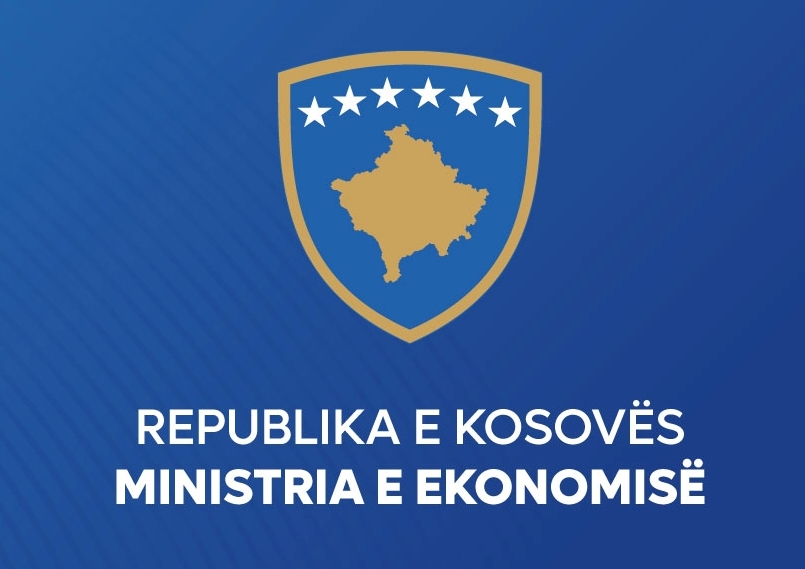Press release on the review of electricity tariffs and the plans for increasing domestic generation capacities
Prishtina, 28.03.2025 – On 14 March 2025, the Energy Regulatory Office (ERO), an independent sector regulator, published consultative reports on the review of electricity tariffs for 2025. The Ministry of Economy and the Government of the Republic of Kosovo have analyzed the reports and trends in the sector. Our comments and suggestions addressed to ERO in this public consultation focus mainly on two directions: ways to reduce the proposed level of increase; and distribution of the burden of increase among consumer groups. In this regard, we consider it is fair that the increase should not affect households consuming less than 800 kWh and that the number of consumption bands (blocks) should be increased for consumption over 800 kWh. This is based on our analyses of consumption trends and distribution, which we briefly summarize below.
Meanwhile, we assure citizens that we have taken and continue to take every possible measure to limit the impact on consumer tariffs. In this regard, several internal factors have helped reduce the pressure on tariffs:
- The electricity sale price by KEK has not increased this year, nor in previous years. As the main electricity producer in Kosovo, this has helped to curb price increases for citizens and businesses. During 2024, KEK’s production was 7% higher compared to the previous year (according to KOSTT and KEK data).
- In 2022 – 2024, the trend of rising import volumes, which had been increasing since 2017, was stabilized and reversed. While Kosovo’s import volume in the 2017–2021 period increased at an average annual rate of 18.1% (according to KOSTT data), in the last three years it has decreased at an average rate of 3.3%.
- Household consumption, which had been growing at exceptionally high rates during the 2017–2021 period, thus increasing the need for imports, has now stabilized. Since the removal of the block tariff by ERO in 2017, households had increased consumption by an average of 7.2% each year, thus increasing the need for import. However, in the last 3 years, with the implementation of energy efficiency investments by the Government and the introduction of block tariffs by ERO, household consumption has increased by less than 0.2% on average. This is in spite of the connection of 63,000 new houses and apartments to the system.
- Nevertheless, disaggregated data show that a considerable portion of winter consumption comes from a relatively small percentage of consumers. For example, in November 2024, 12% of households (those consuming more than 1000 kWh) consumed 39% of total electricity; or, in January 2025, 9% of consumers (those consuming more than 2000 kWh) consumed 29% of total electricity, which is more than the total consumption of all consumers who spent under 800 kWh combined (according to the supplier’s data).
- Business consumption in the regulated market has increased by an average of 6.5% in the last three years, reflecting increased economic activity in the country. With the much faster growth in business consumption and the stable household consumption, the share of businesses in electricity consumption in the regulated market has reached a record 38%, up from 31.9% and 32.9% in 2020–21.
However, despite the stabilization of household demand and the volume of imports, the serious lack of KEK’s generation capacities and high import prices pose a challenge for our electricity system. In this regard, there are several factors that have influenced the proposed tariff increase:
- The average price of imports during this winter season (October 2024–February 2025) was on average 151 Euro/MWh (according to HUPX data). For illustration, before the energy crisis (2011–2020), this price was 46 Euro/MWh, whereas in the 2021–2024 it was 148 Euro/MWh.
- This year, KEK will begin investments in the rehabilitation of TPP Kosova B, due to which there will be several months of block outages during the 2025–27 period.
Investments in TPP Kosova B are necessary to prevent serious supply interruptions. Your contribution today ensures a 20-year extension of the power plant’s lifespan, regular generation, and a significant reduction in air pollution and dependence on expensive imports. The investments will increase the power plant’s capacity by 80 MW and annual generation by 600 GWh, reducing imports by at least 23 million euros per year and increasing exports by at least 20 million euros per year.
Modernizing our energy system will take time, but it ensures long-term benefits for our economy, our health, and that of future generations. Meanwhile, limiting the need for electricity imports through increased efficiency and reduced consumption is essential for the country to go through this period with as little impact as possible.
For this purpose, the Government of the Republic of Kosovo, also with financial support from the European Union, has undertaken and supported record investments of over 35 million euros in energy efficiency over the past few years. In the coming years, investments in efficiency will be further increased, taking place in parallel with the rehabilitation of both power plants, the construction of new generation capacities from wind and solar, energy storage batteries, the expansion of the network, and the increase in district heating capacity in Prishtina, as well as, in the medium term, the construction of new district heating systems in other cities.

